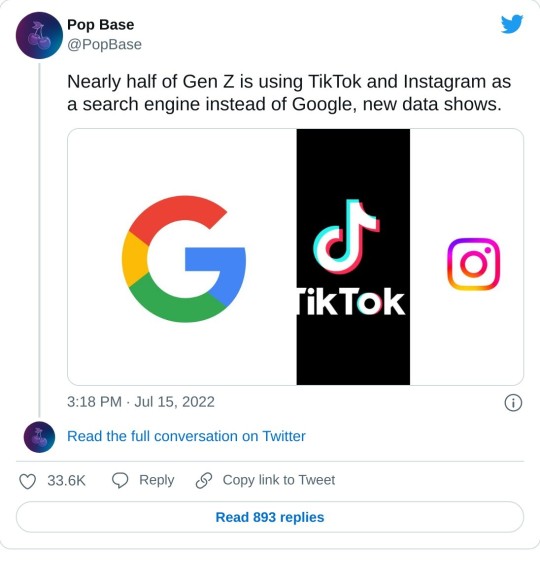#pandemic tech
Explore tagged Tumblr posts
Text
i like. need to talk to people in creative fields. i gotta just talk to people about stuff maybe i’ll figure stuff out that way
#my life if our tiny town theater didn’t close during the pandemic so I would’ve had the chance to learn theater tech….#I think I could’ve had a chance there straight up!!!!#not pjo#chitter chatter#I’m also romanticizing bakery jobs again#I fully acknowledge between my fatigue and chronic pain that’s a terrible idea#but sigh#tea tries to get a job
3 notes
·
View notes
Text
Book Reviews with Quara
Since I keep talking about audiobooks, now I want to do a sort of mini book review of the books I've read since starting to "seriously" pick up reading again last year. Also I just like typing about things. I'm skipping Fire Season by Philip Connors and Last Chance to See by Douglas Adams because I've spoken about them already. Keep in mind I am not super-super critical of reading material; generally if I enjoyed it I'm giving 5 stars. If I disliked it though I get a lot more critical because then I want to start analyzing what didn't work for me. Now go forth and learn about what my reading taste is when I'm not reading/writing angsty mcyt fanfic!
Books I loved, aka 5 stars:
Cold Storage by David Koepp
This was the first book I checked out from Libby and it was a banger. I am still trying to replicate that high tbh. When I gave my mom access to my library card in Libby (her rural library has nothing and my city library has everything) I made her check it out too. The narration on the audiobook is fantastic. My mom raved about the narration and basically says she doesn't want to check anything out that wasn't as good--regularly her reviews to me are "good narrator, not as good as that Cold Storage book" lmao. You may know David Koepp as the guy who wrote the Jurassic Park screenplay. This is his first novel.
It's about a mutated fungus that is a sci-fi version of the very real Ophiocordyceps unilateralis, which is more commonly known as the zombie-ant fungus. In this book, a version of Cordyceps can infect all lifeforms, including humans, and has been locked away deep in a former US military vault that has since been sold and converted into an underground storage facility. The plot follows two unlikely protags who work in the storage facility, as well as the two retired military people who are the only ones to have seen the fungi in action, as they try to prevent it from being released into the world. It's funny, horrifying, and gory.
They are making a movie of this book. The release date is tentatively 2024, but I worry about it because I have heard so little news on it. They did do filming though. I have high hopes because they cast Joe Keery as a main character, which I think is perfect casting for the guy in question. I have low hopes because they cast Liam Neeson, a white man, as a character who was originally Hispanic and (as I just noticed while writing this) changed the character's name to be more white. Ugh. Who is Robert Quinn and what did you do with Roberto Diaz???????
Dark Matter by Blake Crouch
What if you got kidnapped and woke up in a parallel world where everybody knew who you were, but they think you're someone else? What if you're just a quantum physics professor, but this other version of you is a successful theoretical researcher? What if your wife never married you in this universe, and your son was never born? How do you get back home? This book is constantly pulling out interesting new questions, twists, and places to explore. Also I liked that while it does feature romance pretty prominently, it's about a guy who just really loves his wife of 15 years and wants to see her again. I just like it when men love their wives.
Also, a fair amount of Goodreads reviews poke fun at this author for having way too much fun hitting the enter key on his keyboard, but since I listened to the audiobook I never had to deal with any annoying formatting choices lol
I'm Glad My Mom Died by Jennette McCurdy
I feel like we all know about this one already, tbh. If you don't, heavy tw for child abuse and eating disorders. Tread carefully. It's worth it though if you are confident you won't get triggered. If you haven't read it I recommend the audiobook specifically because Jennette narrates it herself and that gives the book so much extra. It was a 6 hour audiobook and I was gripped by it all day.
Wrong Place Wrong Time by Gillian McAllister
BACKWARDS TIMELOOP BABEYY!!! This one was great. It's about a Mom who witnesses her teenage son kill a man. Every day she wakes up in the past again until she can solve why this happened, the mystery leading up to it that entangles her family, and try to prevent it. First she ways up the day before, then two days, then three, then a two weeks, then a few months, then a few years--until her son hasn't even been born yet. I enjoyed it. Also a plus for British accent narrator (can you tell I'm American....)
A Rip Through Time by Kelley Armstrong
This one was fun. I checked it out because it was longish and I had to drive like 8 hrs roundtrip for a work trip, so I listened to this the entire way. It's about a (Canadian) woman named Mallory who was a police detective in the modern day, who gets attacked while out for a jog in Edinburgh, Scotland. The attacker strangles her and she goes unconscious. When she wakes up, however, she finds herself in someone else's body--in the Victorian era. She's now a 19 year old housemaid, and has to adapt as quickly as possible to avoid suspicion. She quickly finds out that she works for a man named Dr. Duncan Gray, who is a medical examiner. And there's a person who's been murdered in a very similar way to how Mallory herself was attacked. And she's quickly finding out that the person who's body she's in was not well-liked.
My favorite part about this one is the emphasis it has on early forensics in Victorian Scotland. Dr. Gray is a fantastic character and it is so interesting to see him doing his lil cutting-edge forensics research (which Mallory, being educated in modern times, wants desperately to help him with.) Also the narrator, while being Canadian, does Scottish accents for all the Scottish characters. I'm not the best person to ask as someone who isn't Scottish but I thought the accents sounded pretty good lol
Everyone in My Family Has Killed Someone by Benjamin Stevenson
My mom recommended this one to me. It's also a lot of fun. The title is, mostly, accurate. Ernest Cunningham (protag) is a writer, who mostly creates how-to books for mystery novelists he sells on Amazon. No, he doesn't write mysteries, he just writes the how-to books. But he's very well-versed in the "rules" of how to write a classic mystery! He promises that, as the narrator of this story, he will always be an entirely reliable narrator. The book itself is obviously fiction but within the narrative of the book, it is being told like a nonfiction account of something that the main character is writing down. This book is sort of a bottle mystery--strange murders while everyone is snowed in at a ski resort during a family reunion, anyone? The main character is funny and breaks the fourth wall often. I am convinced that there is a separate audiobook specific version since the narration within the book references it being an audiobook. The main character will be like "so, you probably realize this isn't the real killer, since we still have 4 hours of the book left to listen to" lol. I almost want to check out a print copy of this to see if the text is different.
Starter Villain by John Scalzi
First one on the list that I didn't listen to as an audiobook. Honestly, I probably read this book in 4 hours flat. Three of those hours just dead-focused while on a plane (with the book's hold expiring as soon as I landed and took my phone off airplane mode.)
I don't really know how to explain this one. I don't think I understood what it was about until I actually got like 4 chapters in and then I couldn't stop. It's just off-the wall ridiculous. There are talking cats. There are dolphins that want to unionize. There is a volcano lair. There are explosions and assasination attempts. There is a reasonably bleakly accurate capitalist picture of what "villainy" means in our world. There is a poor main character in over his head as he learns he's inherited all this from an uncle he never saw. This book is like...satire comedy. Comedy and outlandish but you're also depressed about billionaires a little while reading it.
Books I thought were Okay (3-4 stars but actually I gave both these 4 stars I think)
The Poisoner's Ring by Kelley Armstrong
The second book to the book I mentioned above. Honestly, I remember very well what the first book was about (i typed the summary by memory) but I have trouble remembering specifics about this one. It's a bit too long as well, at 14 hours. I don't have anything bad to say about it, I just didn't enjoy it quite as much as the first one.
But honestly I do remember it was still a good time. I just really like Dr Gray as a character and the setting, early forensic science focus, etc. These books are also setting up to be an EXTREME slow burn romance between Gray and Mallory, which I don't mind. (Literally by book 2 the most we have is that she thinks he's attractive, so at this rate it will take us 3 more books to get anywhere lol.) I will be checking out the 3rd book when it is released this spring.
Someone Else's Shoes by Jojo Moines
Also a book that suffered from being too long. It's a 12 hour audiobook but I think that it could have been 8 or 9 hours and gotten the same point across. My mom recommended this to me. It's narrated by Daisy Ridley, who does a good job. I enjoyed it, but I also started to feel like I really wanted it to be done?
Also unsure how to describe this one. Slightly-contrived-but-cute plot about how a bag switch up in a gym connects two women's stories. One is a, frankly quite annoying, American woman who married rich but has now been completely cut off from her money (and even passport) by her ex-husband who's cheating on her with a younger woman. One is a British woman with low self-esteem and a bad job who is struggling to keep her family afloat while her husband suffers from severe depression. I think my favorite was a side character named Jasmine who brought light to every scene imo.
Books I disliked (2 stars but after writing this review I almost want to make it 1 star)
Aurora by David Koepp
David I really believed in you after Cold Storage. But imo, this book isn't it. It throws away every interesting part of its apocalypse-level plot to focus on the characters. I mean, don't get me wrong, I love a good character-focused plot, except I never connected with anyone in the book. I just kind of didn't enjoy any of them. This is a story that is supposed to be about a solar flare taking out all electricity and communications for most of the world. And it only covers like a few days after the disaster AND THEN TIME SKIPS LIKE 8 MONTHS UNTIL EVERYTHING IS HAPPILY SOLVED NEIGHBORHOOD UTOPIA STYLE. I'm sorry????? Assuming I can believe that this little suburban Illinois cul-de-sac has managed to set up subsistence farming in a few months and is living perfectly happily, why would you....not show me how that happened.....
Also the "everything fits together" character moment at the end felt unearned. I was like yeah, okay, I guess this slots together. But the author didn't earn that moment for me. Instead of connecting with the characters and the plot and getting invested I felt like I was just being....told that everything worked out?? Or told that this was an important moment instead of actually Feeling the moment? It's hard to explain but I was like ok great thanks let's all go home now.
Sigh. I just can't get over the whole "throwing away the most interesting part of your setting" part. Again. Why would you spend a significant time setting up the science and how much of a disaster the solar flare is and then not show any of the characters figuring out how to survive it long-term....?
Remarkably Bright Creatures by Shelby Van Pelt
This book has such a high rating. It's very popular right now. It took me like 12 weeks of waiting for my hold to come up, and that's with the library having 7 copies.
It is, supposedly, about a smart octopus named Marcellus who helps an elderly lady solve the mystery of her son's disappearance at sea when he was a teenager.
In practice, it is about one minute at a time of Marcellus (the best part of the book) and extended sections of characters that I don't care about at all. I assume all the pieces of the story were supposed to come together later, but I was just highly bored. I was so bored that I DNF'd at 25% when my hold was up. I do not care enough to wait weeks to check it out again. Based on the one star reviews I read, the characters I didn't like did not develop into better people later and remained similarly annoying. Now, I don't need characters to be good people of course. But I do expect to be interested in them. I still don't know how the son's disappearance factors in because I felt like I heard barely anything about the supposed main character woman.
I feel vindicated because my coworker also checked out the book and told me a few weeks ago that she was at 50% and there still wasn't anything happening in the plot. I will ask her tomorrow if she finished it or not and if it ever got better.
Write an entire book for Marcellus the octopus and I'll check it out...
Killers of a Certain Age by Deanna Raybourn
This book had so much potential. It's about a group of four women who were formerly assasins but are now retiring at 60. To celebrate retirement, they go on a cruise and then realize that they're the new targets for assasination, presumably because they know too much about the organization that used to employ them.
In execution....very meh. I actually had a Libby glitch on this one, where I think I missed about 1.5 hrs of narration total because the book skipped twice. I have no concept of which parts I missed. What I do know is that, the book was already so cobbled together before the first skip that I didn't realize I had missed anything until the end. Like sure, parts didn't make sense, but I was ready to accept that it was just Like That since the rest of the book was like that. After reading a bunch of reviews of this book I am convinced that there is NO way that all of its flaws can be explained by me missing a small part. After all, I did listen to 8.5 hours of it still.
The characters never felt their age to me. I felt like they either acted like they were 80 or 90, or like they were 20. It just seemed odd to me. The characters also felt very 2D, like the author wrote down three traits per person and called it good. There's a younger woman who appears to know the main character and conveniently helps the group, but I literally never figured out where their relationship originated or how they knew each other. Maybe I missed that too. By the end of the book I still didn't know who anyone was and couldn't remember which person was the main character. The plot jumped around to new locations constantly and often with little transition--this happened even on the parts where I definitely didn't get a skipping glitch. The main villain was a guy I literally had barely heard anything of til that point, although perhaps he came up in the 1.5 hrs I missed. They described the same painting in excruciating detail THREE separate times. It was...too feminist? Feminist in a contrived way where I have to be reminded every 5 minutes the characters are women? Like, I know, I am reading a story about women. Please don't mention it several times a chapter. There are ethical and moral considerations about their profession and chosen organization that never really get given the weight required. There was a love interest for the main character that I hadn't heard of once until he was introduced like an hour from the end--maybe I missed more about him in the parts I skipped? Unknown.
ANNND THAT'S ALL FOLKS!!!
#quara talks books#my current book is mr penumbra's 24 hr bookstore by robin sloan and i'm not getting promising vibes from it 30% in#i'm gonna try to finish it but....the mc kind of annoys me#but i could live with that!#what i can't live with is the author's incessant need to talk about google constantly. there's a character who works for google.#does the author have a thing for google....?? why do they wanna **** google's ***** in this random presumably unaffiliated book????#also more product placement vibes like macbooks and kindles coming up a lot#like dude. please. stop. you promised me mysterious bookstore not megacorp tech worship#also the tech talk hasn't aged super well in this book imo#a bit amusing to read about people being very wowed by someone attending a party 'virtually' via webcam#in the post pandemic work from home era of zoom meeetings and teams meetings etc#also getting manic pixie dreamgirl vibes from main love interest#ANYWAY. stay tuned to see if I have to put this book in the middle or bottom tier (it's already missed its chance at 5 stars)
6 notes
·
View notes
Text
This is bad yes but also can we just. Refrain from making this a "augh these dumb kids" thing. Can we nip that in the bud right now.
And can we instead recognize the major contributing factors of this as being parents and schools phasing out education about the internet. And also google becoming more unusable by the day.
This is the mark of several systemic failures: school system to educate, tech companies for making it easier than ever to predate on people with targeted information (not just kids), and lawmakers for failing to regulate any of this.
How do we expect kids or even teenagers to immediately know better than to do this when it's clear that the tools we had are getting phased out. That the internet is being made harder to navigate outside of the atolls of social media being promoted everywhere.


[ID: A tweet by Popbase that reads, "Nearly half of Gen Z is using TikTok and Instagram as a search engine instead of Google, new data shows.". Below the tweet is a pic of a poorly drawn Goomba from Super Mario Bros with text below him that reads "are you out of your fucking mind".]
#not to mention the way the covid pandemic contributed to a seriously online generation#admin rambles#im gen z. im slightly older than the people being talked about and i grew up in an ex socialist country fresh out of a war#we moved slower with technology than the Western World at large did + my dad is and was incredibly tech literate#i had both optional and obligatory computer ed and plenty of contact with it growing up. i made my mistakes and drew my lines#i have a leg up here. and i recognize now more than ever how these circumstances grew to be a privilege#dont fucking snide people. do something about it.
66K notes
·
View notes
Text
I've been keeping it off my face as much as I can on video, but I'm livid about the TikTok ban.
I have about 100,000 followers on that app. I joined during the pandemic. I was lucky to find a community full of incredible people, many of whom I now consider lifelong friends. Because of the community I found on that app, I found space to experiment with my gender presentation. I was able to come out as nonbinary (to feel SAFE ENOUGH to come out as nonbinary) because of that app.
I've seen a few Tumblr posts in which people gloat they never got into TikTok. Good for you. You won't suffer emotionally, and that makes you feel superior. But if you have no concept of what that app has meant for more than 170,000,000 Americans (that's half of all Americans!), many of whom do not have access to community in physical spaces, kindly sit down.
The ban constitutes the largest mass layoff in American history. We will lose billions of dollars in our domestic economy. Over 7 million small businesses are impacted because of the ban. You will feel the effect of that whether or not you were on the app. If you can't grasp the significance of that, again: kindly sit down.
The language of the TikTok ban has set a dangerous precedent for the American government to shutter any tech platforms they deem "dangerous" for arbitrary, undisclosed, nebulous reasons. This will affect Americans' ability to organize, spread information, and protest. They have effectively banned our right to assembly in digital spaces. This is the greatest infringement of free speech that has ever occurred in the United States. If you can't grasp the significance of that, either: kindly sit down.
This is bigger than "never falling for the TikTok craze." This is an enormous governmental overreach sanctioned by our own Supreme Court. It's bigger than teens doing silly dances you can sneer at from your smug high horse.
And if you can't grasp that: Kindly. Sit. Down.
13K notes
·
View notes
Text
Pandemic report - will IT industry stay same ?
What is Lorem Ipsum? Lorem Ipsum is simply dummy text of the printing and typesetting industry. Lorem Ipsum has been the industry’s standard dummy text ever since the 1500s, when an unknown printer took a galley of type and scrambled it to make a type specimen book. It has survived not only five centuries, but also the leap into electronic typesetting, remaining essentially unchanged. It was…
0 notes
Text







CONTENT CREATOR ARCANE AU INTRODUCTIONS ⭐
finally put together this handy dandy info sheet for your ease of access!
Jayce a.k.a. ManOfProgress (benevolently referred to as MOP by his fans) — 31 years old, he/him, bisexual trans man, Mexican-Brazilian — Started content creation in 2020 as a hobby to battle the pandemic boredom but blew up and decided to make it his full-time gig — Streams games and goofballery on Twitch [623k followers] and posts & streams more personal and unrelated content on YouTube [102k subscribers] — Found Viktor’s channel ~6 months before they started talking and feels very comforted by his voice; sleeps to his videos every night and puts one on whenever he’s anxious or angry — Got into a bad car accident as a child that was fatal to his father and left him with chronic pain on his left leg; now wears a knee brace and a calf compress periodically
Viktor a.k.a. TheMachineHerald — 32 years old, he/him, gay trans man, Czech-Polish — Was unable to leave the house during the peak of the pandemic and found joy and inspiration from Jayce’s content, and chose to start dabbling in content creation in 2022 — Creates very technically advanced and meticulously crafted ASMR videos; usually fully focuses on the mechanical sounds and tech aesthetic but lately has been brancing out more [12,3k subscribers before he gets in kahoots with Jayce] — Started showing his face only around the time when Jayce started watching him and is a bit irritated over the boost in popularity it granted him — Has many health problems, including scoliosis and rheumatoid arthritis (which has caused lung scarring and severe cartilage damage to his right leg and spine from when he was younger and could not access the necessary care to get the inflammation in control)
Mel a.k.a. Melicious (to this day her fans argue whether this is a reference to delicious or malicious) — 33 years old, she/her, bisexual; Jayce’s ex-girlfriend, African-American w/ Algerian roots — Was with Jayce during her time in Piltover but they made the mutual decision to part ways when she was accepted into an art school in London; are still close friends — Made very high-quality weekly diary-style vlogs, often related to art [837k subscribers]. Went on a semi-hiatus after moving but is active on other social medias like Instagram [1,4 million followers]
Jinx a.k.a. GETJINXED — 19 years old, she/they, agender aroace; in a queerplatonic relationship with Ekko, American — Gained popularity on TikTok and later on Twitch when people realized she’s the sister Vi is always complaining about; has no niche and does literally anything she wants to do that day, which usually has to do with either art or engineering [166k followers on Twitch, 850k on TikTok] — Working on an independent music career on the side with their debut single Get Jinxed going viral on TikTok — Lost her finger ON STREAM when working on an art installation, the clip has millions of views
Ekko a.k.a. The_Boy_Savior — 20 years old, he/any, probably nonbinary but he has a job so he doesn’t care abt that rn, bi & asexual; in a queerplatonic relationship with Jinx, African-American — Creates well-researched and thought-provoking video essays about worldwide issues, especially dedicated to the health of the planet and its people [317k subscribers] — Surprised everyone by appearing in one of Jinx’s tiktoks because nobody knew they knew each other let alone that they were in a QPR — Frequently holds fundraisers and has done a lot of good for his community
Caitlyn a.k.a. KillshotKiramman — 23 years old, she/her, lesbian; Vi’s girlfriend and Jayce’s best friend, Chinese-British — Makes videos about weapons (mostly guns and shooting) [176k subscribers] and plays games on her Twitch [29k followers] — Moderates Jayce and Vi’s streams, and completely destroys both of them at FPS games — Had a gun misfiring accident which left her blind in her left eye
Violet a.k.a. vistandsforvideogames — 24 years old, any pronouns, gender-apathetic (call her whatever you like) lesbian; Caitlyn’s partner, American — Gamer on Twitch, but also shares about her side job as a boxer [212k followers] — Sometimes mods for Jayce but mainly just shows up to kick his ass in Mortal Kombat and exude chaotic energy
#luci's cc arcane au#arcane#arcane league of legends#jayvik#arcane fanart#viktor arcane#jayce talis#jayce arcane#mel medarda#jinx arcane#ekko arcane#caitlyn kiramman#vi arcane
10K notes
·
View notes
Text
If anyone wants to know why every tech company in the world right now is clamoring for AI like drowned rats scrabbling to board a ship, I decided to make a post to explain what's happening.
(Disclaimer to start: I'm a software engineer who's been employed full time since 2018. I am not a historian nor an overconfident Youtube essayist, so this post is my working knowledge of what I see around me and the logical bridges between pieces.)
Okay anyway. The explanation starts further back than what's going on now. I'm gonna start with the year 2000. The Dot Com Bubble just spectacularly burst. The model of "we get the users first, we learn how to profit off them later" went out in a no-money-having bang (remember this, it will be relevant later). A lot of money was lost. A lot of people ended up out of a job. A lot of startup companies went under. Investors left with a sour taste in their mouth and, in general, investment in the internet stayed pretty cooled for that decade. This was, in my opinion, very good for the internet as it was an era not suffocating under the grip of mega-corporation oligarchs and was, instead, filled with Club Penguin and I Can Haz Cheezburger websites.
Then around the 2010-2012 years, a few things happened. Interest rates got low, and then lower. Facebook got huge. The iPhone took off. And suddenly there was a huge new potential market of internet users and phone-havers, and the cheap money was available to start backing new tech startup companies trying to hop on this opportunity. Companies like Uber, Netflix, and Amazon either started in this time, or hit their ramp-up in these years by shifting focus to the internet and apps.
Now, every start-up tech company dreaming of being the next big thing has one thing in common: they need to start off by getting themselves massively in debt. Because before you can turn a profit you need to first spend money on employees and spend money on equipment and spend money on data centers and spend money on advertising and spend money on scale and and and
But also, everyone wants to be on the ship for The Next Big Thing that takes off to the moon.
So there is a mutual interest between new tech companies, and venture capitalists who are willing to invest $$$ into said new tech companies. Because if the venture capitalists can identify a prize pig and get in early, that money could come back to them 100-fold or 1,000-fold. In fact it hardly matters if they invest in 10 or 20 total bust projects along the way to find that unicorn.
But also, becoming profitable takes time. And that might mean being in debt for a long long time before that rocket ship takes off to make everyone onboard a gazzilionaire.
But luckily, for tech startup bros and venture capitalists, being in debt in the 2010's was cheap, and it only got cheaper between 2010 and 2020. If people could secure loans for ~3% or 4% annual interest, well then a $100,000 loan only really costs $3,000 of interest a year to keep afloat. And if inflation is higher than that or at least similar, you're still beating the system.
So from 2010 through early 2022, times were good for tech companies. Startups could take off with massive growth, showing massive potential for something, and venture capitalists would throw infinite money at them in the hopes of pegging just one winner who will take off. And supporting the struggling investments or the long-haulers remained pretty cheap to keep funding.
You hear constantly about "Such and such app has 10-bazillion users gained over the last 10 years and has never once been profitable", yet the thing keeps chugging along because the investors backing it aren't stressed about the immediate future, and are still banking on that "eventually" when it learns how to really monetize its users and turn that profit.
The pandemic in 2020 took a magnifying-glass-in-the-sun effect to this, as EVERYTHING was forcibly turned online which pumped a ton of money and workers into tech investment. Simultaneously, money got really REALLY cheap, bottoming out with historic lows for interest rates.
Then the tide changed with the massive inflation that struck late 2021. Because this all-gas no-brakes state of things was also contributing to off-the-rails inflation (along with your standard-fare greedflation and price gouging, given the extremely convenient excuses of pandemic hardships and supply chain issues). The federal reserve whipped out interest rate hikes to try to curb this huge inflation, which is like a fire extinguisher dousing and suffocating your really-cool, actively-on-fire party where everyone else is burning but you're in the pool. And then they did this more, and then more. And the financial climate followed suit. And suddenly money was not cheap anymore, and new loans became expensive, because loans that used to compound at 2% a year are now compounding at 7 or 8% which, in the language of compounding, is a HUGE difference. A $100,000 loan at a 2% interest rate, if not repaid a single cent in 10 years, accrues to $121,899. A $100,000 loan at an 8% interest rate, if not repaid a single cent in 10 years, more than doubles to $215,892.
Now it is scary and risky to throw money at "could eventually be profitable" tech companies. Now investors are watching companies burn through their current funding and, when the companies come back asking for more, investors are tightening their coin purses instead. The bill is coming due. The free money is drying up and companies are under compounding pressure to produce a profit for their waiting investors who are now done waiting.
You get enshittification. You get quality going down and price going up. You get "now that you're a captive audience here, we're forcing ads or we're forcing subscriptions on you." Don't get me wrong, the plan was ALWAYS to monetize the users. It's just that it's come earlier than expected, with way more feet-to-the-fire than these companies were expecting. ESPECIALLY with Wall Street as the other factor in funding (public) companies, where Wall Street exhibits roughly the same temperament as a baby screaming crying upset that it's soiled its own diaper (maybe that's too mean a comparison to babies), and now companies are being put through the wringer for anything LESS than infinite growth that Wall Street demands of them.
Internal to the tech industry, you get MASSIVE wide-spread layoffs. You get an industry that used to be easy to land multiple job offers shriveling up and leaving recent graduates in a desperately awful situation where no company is hiring and the market is flooded with laid-off workers trying to get back on their feet.
Because those coin-purse-clutching investors DO love virtue-signaling efforts from companies that say "See! We're not being frivolous with your money! We only spend on the essentials." And this is true even for MASSIVE, PROFITABLE companies, because those companies' value is based on the Rich Person Feeling Graph (their stock) rather than the literal profit money. A company making a genuine gazillion dollars a year still tears through layoffs and freezes hiring and removes the free batteries from the printer room (totally not speaking from experience, surely) because the investors LOVE when you cut costs and take away employee perks. The "beer on tap, ping pong table in the common area" era of tech is drying up. And we're still unionless.
Never mind that last part.
And then in early 2023, AI (more specifically, Chat-GPT which is OpenAI's Large Language Model creation) tears its way into the tech scene with a meteor's amount of momentum. Here's Microsoft's prize pig, which it invested heavily in and is galivanting around the pig-show with, to the desperate jealousy and rapture of every other tech company and investor wishing it had that pig. And for the first time since the interest rate hikes, investors have dollar signs in their eyes, both venture capital and Wall Street alike. They're willing to restart the hose of money (even with the new risk) because this feels big enough for them to take the risk.
Now all these companies, who were in varying stages of sweating as their bill came due, or wringing their hands as their stock prices tanked, see a single glorious gold-plated rocket up out of here, the likes of which haven't been seen since the free money days. It's their ticket to buy time, and buy investors, and say "see THIS is what will wring money forth, finally, we promise, just let us show you."
To be clear, AI is NOT profitable yet. It's a money-sink. Perhaps a money-black-hole. But everyone in the space is so wowed by it that there is a wide-spread and powerful conviction that it will become profitable and earn its keep. (Let's be real, half of that profit "potential" is the promise of automating away jobs of pesky employees who peskily cost money.) It's a tech-space industrial revolution that will automate away skilled jobs, and getting in on the ground floor is the absolute best thing you can do to get your pie slice's worth.
It's the thing that will win investors back. It's the thing that will get the investment money coming in again (or, get it second-hand if the company can be the PROVIDER of something needed for AI, which other companies with venture-back will pay handsomely for). It's the thing companies are terrified of missing out on, lest it leave them utterly irrelevant in a future where not having AI-integration is like not having a mobile phone app for your company or not having a website.
So I guess to reiterate on my earlier point:
Drowned rats. Swimming to the one ship in sight.
36K notes
·
View notes
Text
I-
it took me a second to realize what he meant by ‘masking’. I honestly thought he meant the sociological coping mechanism for a hot minute before I realized:
‘oh yeah. Covid. Literal face-masks.’ facepalm


#...I mean I guess it's a good thing that I've put 2020 so far behind me that 'pandemic' isn't the 1st thing I think of at the word 'mask'#but that's also WORRYING because *COVID NEVER LEFT*#we just have better tech to fight it#/prevent it
1K notes
·
View notes
Photo

An email a real live person sent in to tech support.
0 notes
Text
TOP STARTUPS IN BRAZIL
Today, it is a major accomplishment for startups to keep their business moving toward stability and acceleration. They must deal with several difficulties set by the unique circumstances arising from the current business atmosphere, including digital adoption, automation of business processes, delegation, team management, workflow management, and cyber security. This necessitates incorporating things that allow startups to adopt to the changing market dynamics, customer needs, and operating conditions.

Startups across Brazil are rising up to empower the industries that have remained underserved in the Brazilian landscape. They are also proving their resilience to economic shocks time and time again, and the ongoing COVID-19 pandemic is doing little to stop the rise of the startups in the country.
#startups#Brazil#innovation#technology landscape#digital adoption#automation#resilience#COVID-19 pandemic#economic uncertainties#tech hubs#market requirements#partnership#efficiency#workspace#cyber security.
0 notes
Text
Top Hormone Therapy Companies
Hormone therapy entails providing the body with enough estrogen, progesterone, or a blend. Hormone replacement treatment comes in a variety of forms, including tablets, patches, lotions, gels, and injections. Hormone therapy relieves symptoms associated with hormonal abnormalities by balancing or altering hormone levels. Hormone replacement therapy is a treatment that also includes female hormones. The drug is used to replace the estrogen that your body stops producing throughout menopause. Hot flashes and vaginal soreness are two menopausal symptoms frequently treated with hormone therapy. In postmenopausal women, hormone treatment has also been found to reduce bone loss and fracture risk.

The world’s total hormone replacement therapy market is estimated to develop at an average CAGR of 6.6% from 2023 to 2030. Hormone replacement therapy is critical for individuals with growth hormone deficiency, menopausal women, the elderly with hypogonadism, and various other patients. The medication is available in multiple forms, including skin and buccal patches, injectables, and pills.
#hormonetherapy#startups#Brazil#innovation#technology landscape#digital adoption#automation#resilience#COVID-19 pandemic#economic uncertainties#tech hubs#market requirements#partnership#efficiency#workspace#cyber security.
0 notes
Text
Covid-19 pandemic inquiry needed immediately as ‘families who lost loved ones still have unanswered questions’, says TD | 0K510G1 | 2024-01-04 08:08:02 | January 04, 2024 at 09:08AM
Covid-19 pandemic inquiry needed immediately as ‘families who lost loved ones still have unanswered questions’, says TD | 0K510G1 | 2024-01-04 08:08:02 Read More … Check full articles at Source: ALPHA MAG

View On WordPress
#Covid-19 pandemic inquiry needed immediately as ‘families who lost loved ones still have unanswered questions’#Politics#says TD | 0K510G1 | 2024-01-04 08:08:02#ShowBiz#Sport#Tech#UK#US#World
0 notes
Text
A new web app for the COVID-19 immune antibody helps in vaccine scheduling

- By InnoNurse Staff -
With SARS-COV-2 infection rates on the rise once more, you might be wondering if you should receive a COVID-19 vaccination booster shot. Yale physicians have created a tool to assist in answering these questions.
Read more at Yale University
///
Other recent news and insights
Chefaa receives a $5.25 million budget boost to expand health-tech services throughout Saudi Arabia (Tech in Africa)
India: Peptris, an AI-powered drug discovery startup, has raised $1 million in pre-seed funding (The Financial Express)
#covid19#covid 19#pandemic#data science#medtech#vaccination#health tech#digital health#public health#ai#drug discovery#chefaa#saudi arabia#egypt#mena#india#peptris#pharma
0 notes
Text
Care home residents compared to ‘reptile house exhibits’ because of pandemic restrictions, Scots Covid inquiry hears | In Trend Today
Care home residents compared to ‘reptile house exhibits’ because of pandemic restrictions, Scots Covid inquiry hears Read Full Text or Full Article on MAG NEWS

View On WordPress
#Care home residents compared to ‘reptile house exhibits’ because of pandemic restrictions#Celebrities#Money#Motors#Politics#Scots Covid inquiry hears#ShowBiz#Sport#Tech#UK#US#World
0 notes
Text
Bossware is unfair (in the legal sense, too)

You can get into a lot of trouble by assuming that rich people know what they're doing. For example, might assume that ad-tech works – bypassing peoples' critical faculties, reaching inside their minds and brainwashing them with Big Data insights, because if that's not what's happening, then why would rich people pour billions into those ads?
https://pluralistic.net/2020/12/06/surveillance-tulip-bulbs/#adtech-bubble
You might assume that private equity looters make their investors rich, because otherwise, why would rich people hand over trillions for them to play with?
https://thenextrecession.wordpress.com/2024/11/19/private-equity-vampire-capital/
The truth is, rich people are suckers like the rest of us. If anything, succeeding once or twice makes you an even bigger mark, with a sense of your own infallibility that inflates to fill the bubble your yes-men seal you inside of.
Rich people fall for scams just like you and me. Anyone can be a mark. I was:
https://pluralistic.net/2024/02/05/cyber-dunning-kruger/#swiss-cheese-security
But though rich people can fall for scams the same way you and I do, the way those scams play out is very different when the marks are wealthy. As Keynes had it, "The market can remain irrational longer than you can remain solvent." When the marks are rich (or worse, super-rich), they can be played for much longer before they go bust, creating the appearance of solidity.
Noted Keynesian John Kenneth Galbraith had his own thoughts on this. Galbraith coined the term "bezzle" to describe "the magic interval when a confidence trickster knows he has the money he has appropriated but the victim does not yet understand that he has lost it." In that magic interval, everyone feels better off: the mark thinks he's up, and the con artist knows he's up.
Rich marks have looong bezzles. Empirically incorrect ideas grounded in the most outrageous superstition and junk science can take over whole sections of your life, simply because a rich person – or rich people – are convinced that they're good for you.
Take "scientific management." In the early 20th century, the con artist Frederick Taylor convinced rich industrialists that he could increase their workers' productivity through a kind of caliper-and-stopwatch driven choreographry:
https://pluralistic.net/2022/08/21/great-taylors-ghost/#solidarity-or-bust
Taylor and his army of labcoated sadists perched at the elbows of factory workers (whom Taylor referred to as "stupid," "mentally sluggish," and as "an ox") and scripted their motions to a fare-the-well, transforming their work into a kind of kabuki of obedience. They weren't more efficient, but they looked smart, like obedient robots, and this made their bosses happy. The bosses shelled out fortunes for Taylor's services, even though the workers who followed his prescriptions were less efficient and generated fewer profits. Bosses were so dazzled by the spectacle of a factory floor of crisply moving people interfacing with crisply working machines that they failed to understand that they were losing money on the whole business.
To the extent they noticed that their revenues were declining after implementing Taylorism, they assumed that this was because they needed more scientific management. Taylor had a sweet con: the worse his advice performed, the more reasons their were to pay him for more advice.
Taylorism is a perfect con to run on the wealthy and powerful. It feeds into their prejudice and mistrust of their workers, and into their misplaced confidence in their own ability to understand their workers' jobs better than their workers do. There's always a long dollar to be made playing the "scientific management" con.
Today, there's an app for that. "Bossware" is a class of technology that monitors and disciplines workers, and it was supercharged by the pandemic and the rise of work-from-home. Combine bossware with work-from-home and your boss gets to control your life even when in your own place – "work from home" becomes "live at work":
https://pluralistic.net/2021/02/24/gwb-rumsfeld-monsters/#bossware
Gig workers are at the white-hot center of bossware. Gig work promises "be your own boss," but bossware puts a Taylorist caliper wielder into your phone, monitoring and disciplining you as you drive your wn car around delivering parcels or picking up passengers.
In automation terms, a worker hitched to an app this way is a "reverse centaur." Automation theorists call a human augmented by a machine a "centaur" – a human head supported by a machine's tireless and strong body. A "reverse centaur" is a machine augmented by a human – like the Amazon delivery driver whose app goads them to make inhuman delivery quotas while punishing them for looking in the "wrong" direction or even singing along with the radio:
https://pluralistic.net/2024/08/02/despotism-on-demand/#virtual-whips
Bossware pre-dates the current AI bubble, but AI mania has supercharged it. AI pumpers insist that AI can do things it positively cannot do – rolling out an "autonomous robot" that turns out to be a guy in a robot suit, say – and rich people are groomed to buy the services of "AI-powered" bossware:
https://pluralistic.net/2024/01/29/pay-no-attention/#to-the-little-man-behind-the-curtain
For an AI scammer like Elon Musk or Sam Altman, the fact that an AI can't do your job is irrelevant. From a business perspective, the only thing that matters is whether a salesperson can convince your boss that an AI can do your job – whether or not that's true:
https://pluralistic.net/2024/07/25/accountability-sinks/#work-harder-not-smarter
The fact that AI can't do your job, but that your boss can be convinced to fire you and replace you with the AI that can't do your job, is the central fact of the 21st century labor market. AI has created a world of "algorithmic management" where humans are demoted to reverse centaurs, monitored and bossed about by an app.
The techbro's overwhelming conceit is that nothing is a crime, so long as you do it with an app. Just as fintech is designed to be a bank that's exempt from banking regulations, the gig economy is meant to be a workplace that's exempt from labor law. But this wheeze is transparent, and easily pierced by enforcers, so long as those enforcers want to do their jobs. One such enforcer is Alvaro Bedoya, an FTC commissioner with a keen interest in antitrust's relationship to labor protection.
Bedoya understands that antitrust has a checkered history when it comes to labor. As he's written, the history of antitrust is a series of incidents in which Congress revised the law to make it clear that forming a union was not the same thing as forming a cartel, only to be ignored by boss-friendly judges:
https://pluralistic.net/2023/04/14/aiming-at-dollars/#not-men
Bedoya is no mere historian. He's an FTC Commissioner, one of the most powerful regulators in the world, and he's profoundly interested in using that power to help workers, especially gig workers, whose misery starts with systemic, wide-scale misclassification as contractors:
https://pluralistic.net/2024/02/02/upward-redistribution/
In a new speech to NYU's Wagner School of Public Service, Bedoya argues that the FTC's existing authority allows it to crack down on algorithmic management – that is, algorithmic management is illegal, even if you break the law with an app:
https://www.ftc.gov/system/files/ftc_gov/pdf/bedoya-remarks-unfairness-in-workplace-surveillance-and-automated-management.pdf
Bedoya starts with a delightful analogy to The Hawtch-Hawtch, a mythical town from a Dr Seuss poem. The Hawtch-Hawtch economy is based on beekeeping, and the Hawtchers develop an overwhelming obsession with their bee's laziness, and determine to wring more work (and more honey) out of him. So they appoint a "bee-watcher." But the bee doesn't produce any more honey, which leads the Hawtchers to suspect their bee-watcher might be sleeping on the job, so they hire a bee-watcher-watcher. When that doesn't work, they hire a bee-watcher-watcher-watcher, and so on and on.
For gig workers, it's bee-watchers all the way down. Call center workers are subjected to "AI" video monitoring, and "AI" voice monitoring that purports to measure their empathy. Another AI times their calls. Two more AIs analyze the "sentiment" of the calls and the success of workers in meeting arbitrary metrics. On average, a call-center worker is subjected to five forms of bossware, which stand at their shoulders, marking them down and brooking no debate.
For example, when an experienced call center operator fielded a call from a customer with a flooded house who wanted to know why no one from her boss's repair plan system had come out to address the flooding, the operator was punished by the AI for failing to try to sell the customer a repair plan. There was no way for the operator to protest that the customer had a repair plan already, and had called to complain about it.
Workers report being sickened by this kind of surveillance, literally – stressed to the point of nausea and insomnia. Ironically, one of the most pervasive sources of automation-driven sickness are the "AI wellness" apps that bosses are sold by AI hucksters:
https://pluralistic.net/2024/03/15/wellness-taylorism/#sick-of-spying
The FTC has broad authority to block "unfair trade practices," and Bedoya builds the case that this is an unfair trade practice. Proving an unfair trade practice is a three-part test: a practice is unfair if it causes "substantial injury," can't be "reasonably avoided," and isn't outweighed by a "countervailing benefit." In his speech, Bedoya makes the case that algorithmic management satisfies all three steps and is thus illegal.
On the question of "substantial injury," Bedoya describes the workday of warehouse workers working for ecommerce sites. He describes one worker who is monitored by an AI that requires him to pick and drop an object off a moving belt every 10 seconds, for ten hours per day. The worker's performance is tracked by a leaderboard, and supervisors punish and scold workers who don't make quota, and the algorithm auto-fires if you fail to meet it.
Under those conditions, it was only a matter of time until the worker experienced injuries to two of his discs and was permanently disabled, with the company being found 100% responsible for this injury. OSHA found a "direct connection" between the algorithm and the injury. No wonder warehouses sport vending machines that sell painkillers rather than sodas. It's clear that algorithmic management leads to "substantial injury."
What about "reasonably avoidable?" Can workers avoid the harms of algorithmic management? Bedoya describes the experience of NYC rideshare drivers who attended a round-table with him. The drivers describe logging tens of thousands of successful rides for the apps they work for, on promise of "being their own boss." But then the apps start randomly suspending them, telling them they aren't eligible to book a ride for hours at a time, sending them across town to serve an underserved area and still suspending them. Drivers who stop for coffee or a pee are locked out of the apps for hours as punishment, and so drive 12-hour shifts without a single break, in hopes of pleasing the inscrutable, high-handed app.
All this, as drivers' pay is falling and their credit card debts are mounting. No one will explain to drivers how their pay is determined, though the legal scholar Veena Dubal's work on "algorithmic wage discrimination" reveals that rideshare apps temporarily increase the pay of drivers who refuse rides, only to lower it again once they're back behind the wheel:
https://pluralistic.net/2023/04/12/algorithmic-wage-discrimination/#fishers-of-men
This is like the pit boss who gives a losing gambler some freebies to lure them back to the table, over and over, until they're broke. No wonder they call this a "casino mechanic." There's only two major rideshare apps, and they both use the same high-handed tactics. For Bedoya, this satisfies the second test for an "unfair practice" – it can't be reasonably avoided. If you drive rideshare, you're trapped by the harmful conduct.
The final prong of the "unfair practice" test is whether the conduct has "countervailing value" that makes up for this harm.
To address this, Bedoya goes back to the call center, where operators' performance is assessed by "Speech Emotion Recognition" algorithms, a psuedoscientific hoax that purports to be able to determine your emotions from your voice. These SERs don't work – for example, they might interpret a customer's laughter as anger. But they fail differently for different kinds of workers: workers with accents – from the American south, or the Philippines – attract more disapprobation from the AI. Half of all call center workers are monitored by SERs, and a quarter of workers have SERs scoring them "constantly."
Bossware AIs also produce transcripts of these workers' calls, but workers with accents find them "riddled with errors." These are consequential errors, since their bosses assess their performance based on the transcripts, and yet another AI produces automated work scores based on them.
In other words, algorithmic management is a procession of bee-watchers, bee-watcher-watchers, and bee-watcher-watcher-watchers, stretching to infinity. It's junk science. It's not producing better call center workers. It's producing arbitrary punishments, often against the best workers in the call center.
There is no "countervailing benefit" to offset the unavoidable substantial injury of life under algorithmic management. In other words, algorithmic management fails all three prongs of the "unfair practice" test, and it's illegal.
What should we do about it? Bedoya builds the case for the FTC acting on workers' behalf under its "unfair practice" authority, but he also points out that the lack of worker privacy is at the root of this hellscape of algorithmic management.
He's right. The last major update Congress made to US privacy law was in 1988, when they banned video-store clerks from telling the newspapers which VHS cassettes you rented. The US is long overdue for a new privacy regime, and workers under algorithmic management are part of a broad coalition that's closer than ever to making that happen:
https://pluralistic.net/2023/12/06/privacy-first/#but-not-just-privacy
Workers should have the right to know which of their data is being collected, who it's being shared by, and how it's being used. We all should have that right. That's what the actors' strike was partly motivated by: actors who were being ordered to wear mocap suits to produce data that could be used to produce a digital double of them, "training their replacement," but the replacement was a deepfake.
With a Trump administration on the horizon, the future of the FTC is in doubt. But the coalition for a new privacy law includes many of Trumpland's most powerful blocs – like Jan 6 rioters whose location was swept up by Google and handed over to the FBI. A strong privacy law would protect their Fourth Amendment rights – but also the rights of BLM protesters who experienced this far more often, and with far worse consequences, than the insurrectionists.
The "we do it with an app, so it's not illegal" ruse is wearing thinner by the day. When you have a boss for an app, your real boss gets an accountability sink, a convenient scapegoat that can be blamed for your misery.
The fact that this makes you worse at your job, that it loses your boss money, is no guarantee that you will be spared. Rich people make great marks, and they can remain irrational longer than you can remain solvent. Markets won't solve this one – but worker power can.

Image: Cryteria (modified) https://commons.wikimedia.org/wiki/File:HAL9000.svg
CC BY 3.0 https://creativecommons.org/licenses/by/3.0/deed.en
#pluralistic#alvaro bedoya#ftc#workers#algorithmic management#veena dubal#bossware#taylorism#neotaylorism#snake oil#dr seuss#ai#sentiment analysis#digital phrenology#speech emotion recognition#shitty technology adoption curve
2K notes
·
View notes
Text
Pandemic report - will IT industry stay same ?
What is Lorem Ipsum? Lorem Ipsum is simply dummy text of the printing and typesetting industry. Lorem Ipsum has been the industry’s standard dummy text ever since the 1500s, when an unknown printer took a galley of type and scrambled it to make a type specimen book. It has survived not only five centuries, but also the leap into electronic typesetting, remaining essentially unchanged. It was…
0 notes